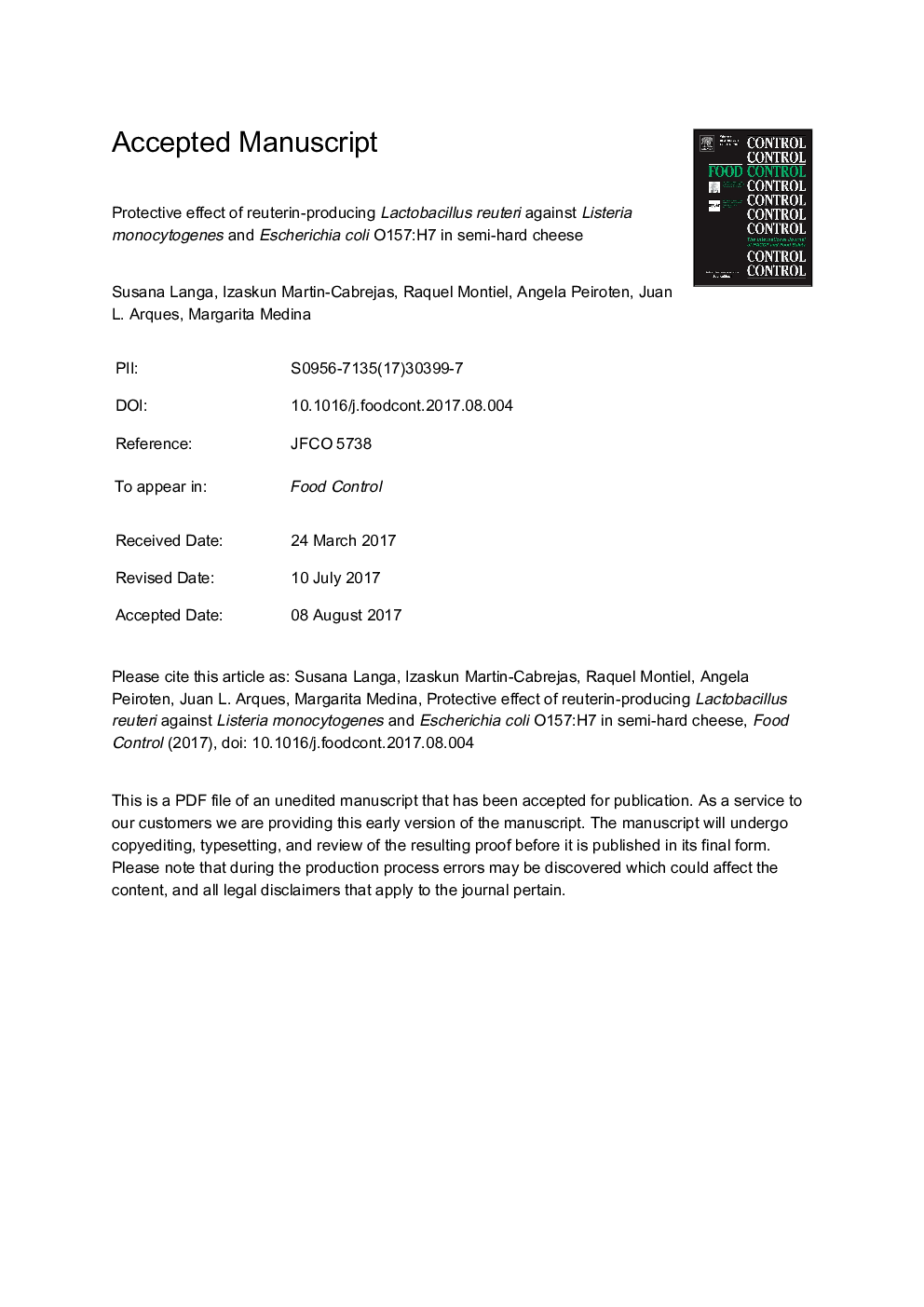| Article ID | Journal | Published Year | Pages | File Type |
|---|---|---|---|---|
| 5767309 | Food Control | 2018 | 26 Pages |
Abstract
Bioprotective effect of reuterin-producing Lactobacillus reuteri INIA P572 was assessed in cheeses artificially contaminated with Listeria monocytogenes and Escherichia coli O157:H7 and ripened for 30 days. Reuterin production in cheese made with L. reuteri INIA P572 supplemented with 100 mM glycerol was confirmed up to 7 d of ripening with a maximum of 5.2 μmol/g at 1 day. L. reuteri was able to survive up to 5.37 log cfu/g in 30 d control cheese, although it was reduced to 2.59 log cfu/g when added simultaneously with glycerol. L. monocytogenes counts in control cheese were 4.31 log cfu/g after 30 days of ripening, whereas in cheese made with L. reuteri INIA P572 and 100 mM glycerol, this pathogen was only detectable by enrichment of 25 g samples from day 7 onwards. This antimicrobial strategy also diminished E. coli O157:H7 counts on day 1 by 5.53 log units with respect to control cheese. After 30 d, E. coli O157:H7 counts were 0.85 log cfu/g in control cheese, but the pathogen was not detected in 25 g cheese made with L. reuteri and 100 mM glycerol from day 7 onwards. Reuterin production in situ might be a feasible alternative to improve cheese safety that could also be exploited in the control of other undesirable microorganisms.
Related Topics
Life Sciences
Agricultural and Biological Sciences
Food Science
Authors
Susana Langa, Izaskun MartÃn-Cabrejas, Raquel Montiel, Ángela Peirotén, Juan L. Arqués, Margarita Medina,
